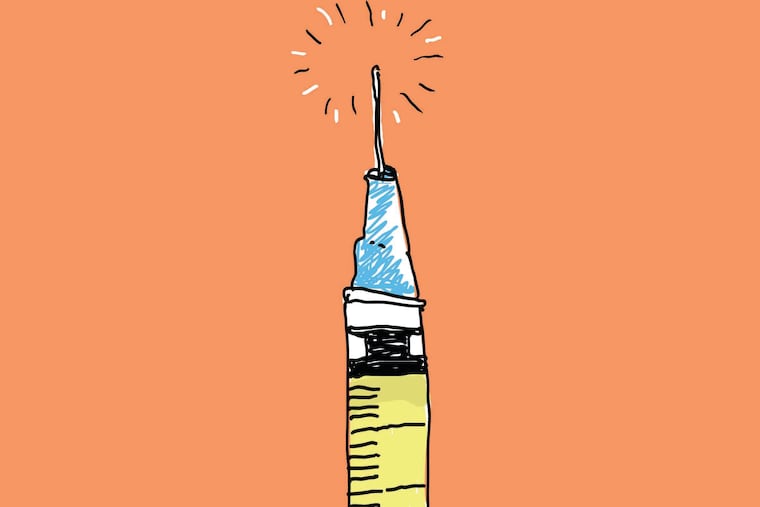How to avoid COVID-19 vaccine scams
Scammers are using platforms like phone calls, text messages, and social media to try to steal personal information, money, or both. Don't fall for it.

Now that a COVID-19 vaccine has arrived, many of us are eagerly awaiting the day we get our first shot. However, figuring out when you’re eligible, and where to get vaccinated once you are, is challenging. The rules and registration processes vary among states, and sometimes counties, too, and vaccine supplies are limited, making appointments hard to get. Many people are feeling confused, and scammers are capitalizing on this.
In December, the U.S. Department of Health and Human Services (HHS) issued a warning about scams related to COVID-19 vaccines. Shortly after, the Pennsylvania Office of Attorney General also issued an alert.
Scammers are often advertising false shortcuts to getting the vaccine and using phone calls or platforms like text messages and social media to try to steal personal and insurance information, money, or both.
So how can you know if you’re getting scammed? For starters, if an offer sounds too good to be true, it probably is. “Any call claiming that you can cut in line to get the vaccine by paying out of pocket is a scam,” says the Pennsylvania Office of Attorney General.
» READ MORE: Use our lookup tool to find out what's happening with the COVID-19 vaccine where you live
Here are red flags to watch for.
Red flag: A “government” official is contacting you for information to get you signed up for the vaccine.
Government officials won’t call or email you to tell you that you’re required to get the vaccine, nor will they call or email you to ask for personal information or money to get you signed up. Be suspicious of door-to-door solicitations about the vaccine, too.
Red flag: You’re asked to pay money upfront for the vaccine.
The coronavirus vaccine is free. You will not be asked to pay in advance or to pay out of pocket for the vaccine. (Vaccination providers can charge an administration fee for giving the shot, says the CDC. Providers are instructed to submit administration fees to your insurance, or if you’re uninsured, to a Provider Relief Fund.)
Red flag: You’re promised early vaccine access if you pay a fee.
There’s no way to pay your way to an earlier spot in line. Visit your state’s health department website for up-to-date information on who’s eligible in your area. Pennsylvania’s site is here; New Jersey’s is here. (Philadelphia’s vaccine schedule differs from the rest of Pennsylvania. Visit the city’s Department of Public Health website to see who’s eligible.)
Red flag: Your “insurance company” is calling to determine if you’re eligible for the vaccine.
Ignore unsolicited emails and calls from people asking for personal or medical information to determine whether you’re eligible for the vaccine, even if the caller claims they’re from your insurance company or a medical center. Your insurance company will not call to ask for this information. If you have COVID-19 related questions for your insurance company, connect directly by calling the number on the back of your medical insurance or prescription card.
Red flag: You get a text message from an unknown number with a link advertising the vaccine, or you see vaccine opportunities advertised on social media.
Keep vaccine conversation over text messaging between family and friends. The HHS warns against responding to, or opening, links in text messages from people you don’t know. You should also ignore ads or offers on social media platforms related to COVID-19 vaccines, testing, and treatment.
Red flag: You’re offered to have a vaccine shipped to your house.
As much as we’d all dream of having a vaccine shipped straight to us, it’s not an option.
If you think you’ve been scammed:
Fraud attempts requesting personal information or payment can appear to be legitimate. If you think you’ve been the victim of a COVID-19 scam, you can report it to the HHS Office of Inspector General at oig.hhs.gov/fraud/report-fraud or call 1-800-HHS-TIPS. Pennsylvania residents can also file a complaint with the state Attorney General’s Office at attorneygeneral.gov/submit-a-complaint/scams-complaint.
» READ MORE: Our best pandemic tips: Read our most useful stories about COVID-19